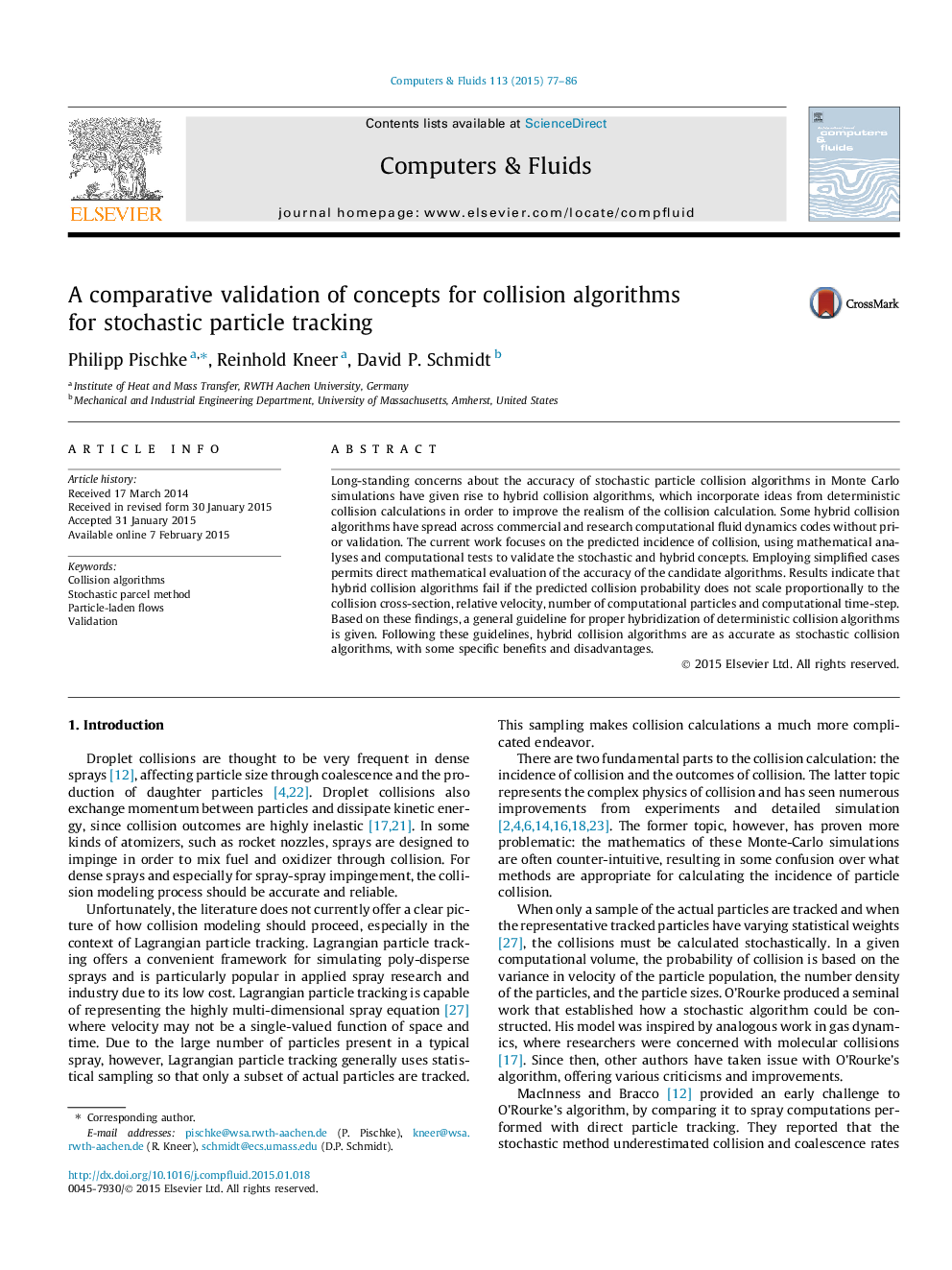| Article ID | Journal | Published Year | Pages | File Type |
|---|---|---|---|---|
| 761438 | Computers & Fluids | 2015 | 10 Pages |
•Concepts for collision algorithms (deterministic, stochastic, hybrid).•Theoretical and numerical validation by simplified validation cases.•Comparison of convergence behavior of deterministic and stochastic algorithms.•Sources of non-physical behavior in hybrid collision algorithms.•A general guideline to the development of valid collision algorithms.
Long-standing concerns about the accuracy of stochastic particle collision algorithms in Monte Carlo simulations have given rise to hybrid collision algorithms, which incorporate ideas from deterministic collision calculations in order to improve the realism of the collision calculation. Some hybrid collision algorithms have spread across commercial and research computational fluid dynamics codes without prior validation. The current work focuses on the predicted incidence of collision, using mathematical analyses and computational tests to validate the stochastic and hybrid concepts. Employing simplified cases permits direct mathematical evaluation of the accuracy of the candidate algorithms. Results indicate that hybrid collision algorithms fail if the predicted collision probability does not scale proportionally to the collision cross-section, relative velocity, number of computational particles and computational time-step. Based on these findings, a general guideline for proper hybridization of deterministic collision algorithms is given. Following these guidelines, hybrid collision algorithms are as accurate as stochastic collision algorithms, with some specific benefits and disadvantages.
